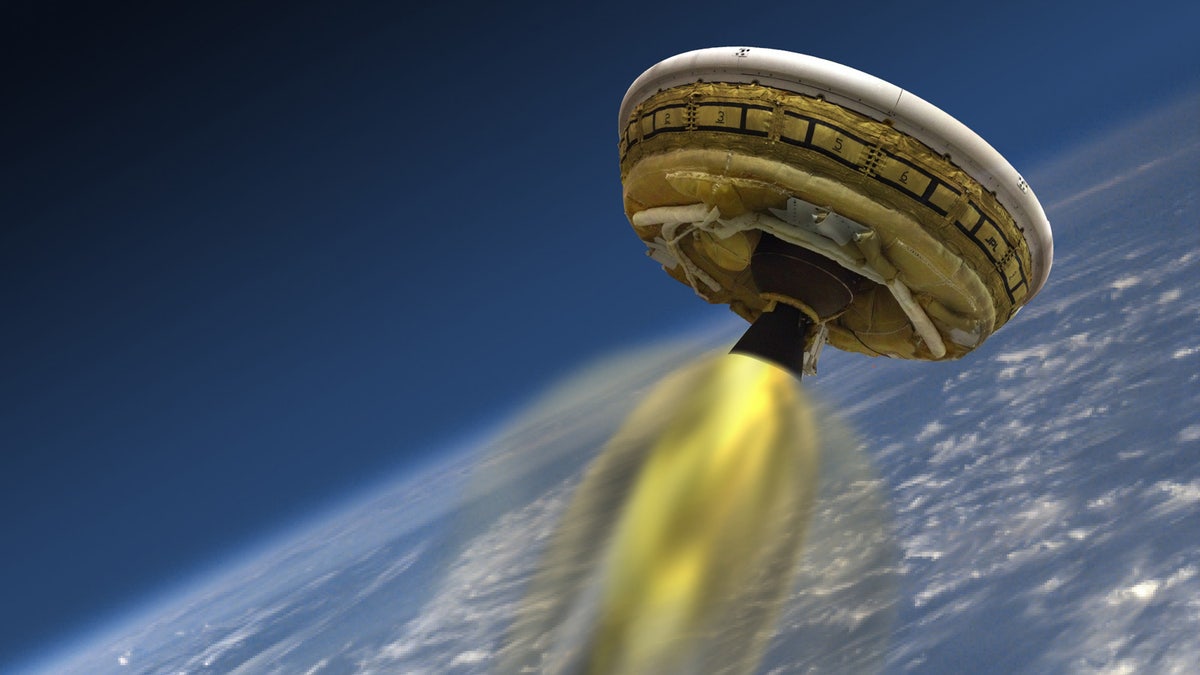
This artist's concept shows the test vehicle for NASA's Low-Density Supersonic Decelerator (LDSD), designed to test landing technologies for future Mars missions. (Image credit: NASA/JPL-Caltech)
NASA has given the world another glimpse of its revolutionary flying saucer technology, which will play a crucial role in future Mars missions.
The 15-foot wide, 7,000-pound test vehicle underwent a “spin test” on a table at NASA’s Jet Propulsion Laboratory in Pasadena, Calif. during a live broadcast Tuesday, ABC News reports.
The flying saucer is part of NASA’s Low-Density Supersonic Decelerator (LDSD) project, which aims to develop landing vehicles for future missions.
NASA says the project tests “breakthrough technologies that will enable large payloads to be safely landed on the surface of Mars, or other planetary bodies with atmospheres, including Earth.” According to the space agency, the technologies will also offer access to more of the red planet’s surface by enabling landings at higher-altitude sites.
As part of its LDSD research, NASA will fly a rocket-powered saucer-shaped test vehicle into near-space from the Navy’s Pacific Missile Range Facility on Kauai, Hawaii, in June.
Last year an LDSD test in Hawaii was deemed a success by engineers, despite the vehicle’s huge parachute apparently failing to deploy properly, according to Space.com.
